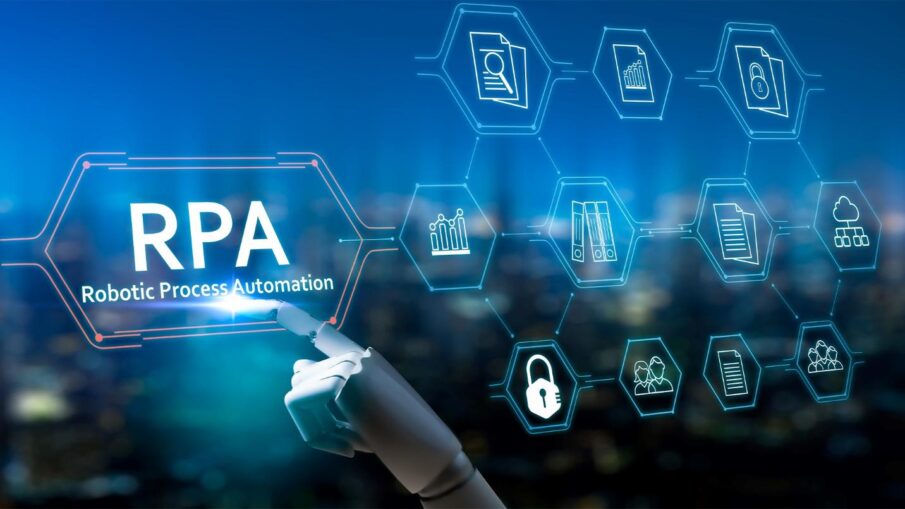Your clients want more than just smart robots for their auditing needs. Expectations are high for robots that can go above and beyond in holding conversations, automating investigative processes, and making sense of endless paperwork. Collaborative robots, that can work together to solve problems and produce results, are also a trending automation solution.
There is an apparent need for robots that can automate any process possible, but your clients need to know which processes should be automated, and this is why RPA is rapidly growing in demand.
Though auditing software has already proven to have endless automating potential, your clients need an even more effective solution. They need software that can handle all manual, repetitive, basic, and rule-based tasks while also removing the potential for error.
By integrating your auditing software solution with Robotic Process Automation (RPA), your solution will be able to do so much more. For example, it will be able to streamline audit evidence collections and preparation activities by taking standardized data and combining it (from different sources) into a single audit work paper.
RPA can help perform multiple audit processes, such as handling layers of processes that require different software. An innovative solution, RPA provides unparalleled automation results, and here’s why:
Robotic Process Automation (RPA) & Audit Software
RPA works with auditing software to provide auditors with an innovative and up-to-date automation solution, precisely what your clients need.
Auditing software on its own is already effective at handling isolated tasks like:
- Digitizing working papers and their management using CASEWARE
- Performing specific audit tests with IDEA and ACL, for instance
- Running regressions using statistics software like STATA and R
As it is, Audit software is an easy-to-understand and intuitive UI that can fetch data and generate reports. Your clients are not daunted by the need for a programming degree or any tech experience to utilize it. And these are the already present benefits that they don’t want to lose.
Though these capabilities contribute to a decent foundation, more can be done. This is where RPA comes in. Providing innovative benefits like RPA software bots, the ability to be developed into an IPA, and its ability to run with other application software from a user interface level. Auditors finally have the opportunity to rethink, redesign, and reorganize their auditing process.
Top 5 Benefits of RPA
Auditing software can already accomplish a lot, and with RPA, these benefits can be increased tenfold. To prove this, here are 5 benefits of an RPA integration with your auditing software solution:
Accelerates transformation
RPA integration is proven to accelerate the digital transformation of businesses, relieving them of time-consuming tasks so more time can be spent on digital and business opportunities.
Higher quality output
Allowing tasks to be performed more uniformly and efficiently, RPA provides traceable and auditable results. The chance of manual errors is also lowered by its inherent standardization, and even if they do occur, they can be detected and rectified effortlessly with its systematic nature.
Scalable and doesn’t disrupt underlying systems
With its non-disruptive nature, your clients will be able to implement RPA into their workflows easily without worrying about disruption to their pre-existing structures or risks.
Your clients can also utilize its versatile design to upscale and downscale various robotic operations, providing a solution personalized to their robotic automation auditing needs.
Increases efficiency and productivity
It can execute audit tasks around the clock and at an accelerated pace. This reduces manual labor time and increases the productivity of auditors as their time and tasks are less stretched.
Reduces costs and ensures good ROI
RPA allows for a seamless transition into Internal Audit automation. This seemingly small transition can save your clients a significant amount on costs. The cherry on top? It also offers them better ROI and ROR (their Return On Robots investment).
Now’s the Time to Ensure a Seamless Integration
By providing your clients with the ability to utilize RPA within your auditing software solution, the full potential of automation for auditing processes can be realized and depended upon.
No more do auditors need to concern themselves with menial, repetitive tasks. They will be able to put their energy and focus into more pressing tasks that do require human oversight and input.
Though a seemingly simple solution, RPA does have a complex framework and process of data standardization that requires experienced input. Automation tools like UIPath are ideal for such a task as they are proven to streamline processes, improve customer experiences, ensure compliance, and so much more.
If you want to make sure that you can offer all that RPA has, you’ll also need to decide between the several frameworks proposed for the application of RPA. All of which require an experienced understanding of RPA implementation to identify what business processes can and should be automated with RPA and then implement it.
To ensure this is seamless, all audit-relevant data also needs to be standardized with consistent labeling and identical formatting.
Once you’ve created this solid foundation, you will be able to offer an innovative auditing solution that your clients know they will benefit from. Not only that, but your solution will also have a competitive edge over the average auditing solutions currently available in the market.
Clearly, RPA integration is the automation add-on you and your clients have been waiting for.
Author Bio:

Paul Bracht is an experienced Account Manager with a demonstrated history of working in the computer software industry and Partnership technology landscape. He has worked at Chetu since 2015 and has since built a reputation as a thought leader and industry expert within the IT community. As the Director of Sales at Chetu, Paul plays a critical role in assisting companies with their partnership technology, marketing, and media-related software projects. Paul is a strong sales professional with a Bachelor’s degree focused in Political Science and Government from The University of Akron.
